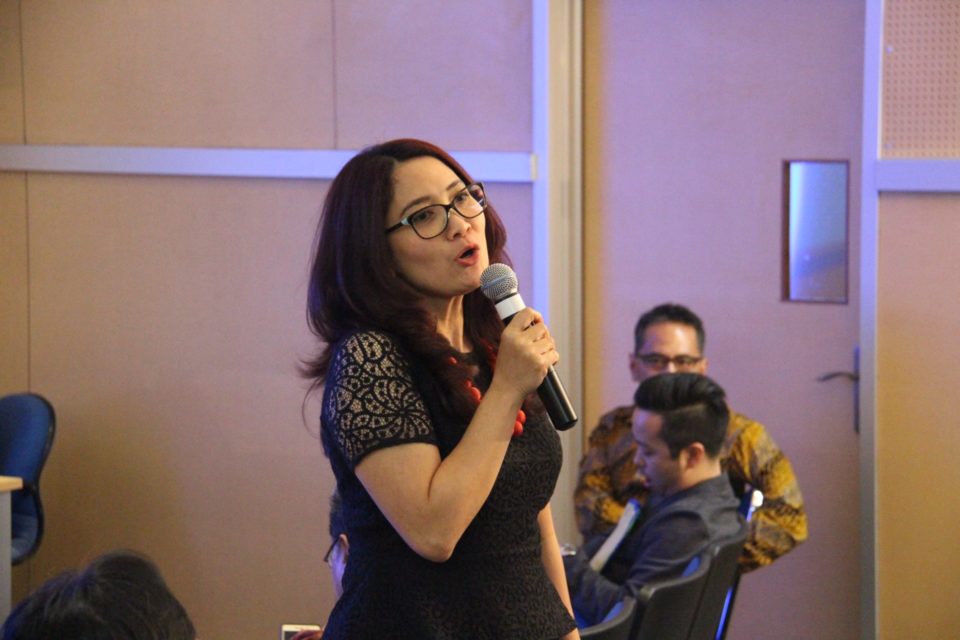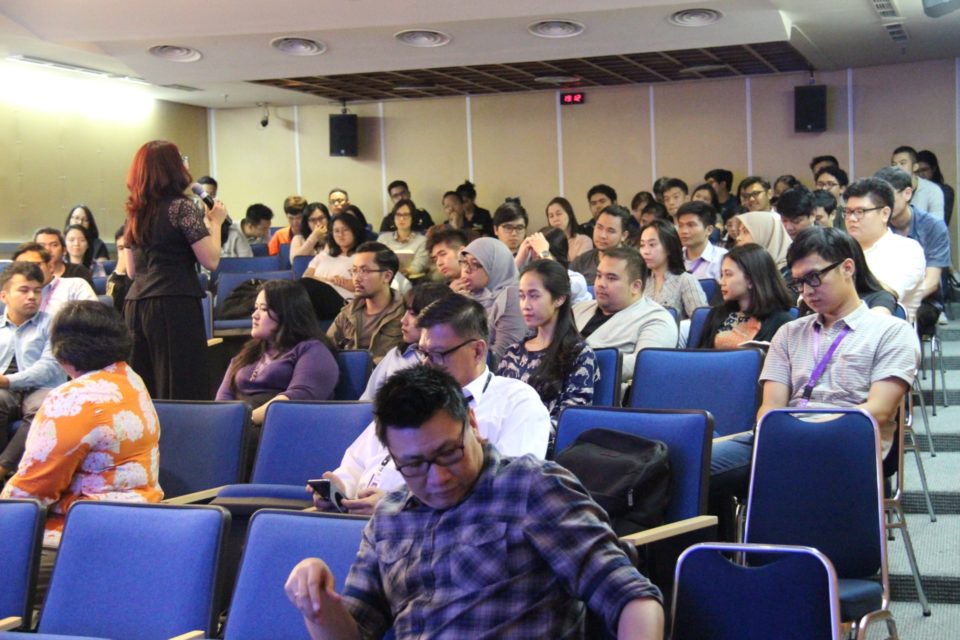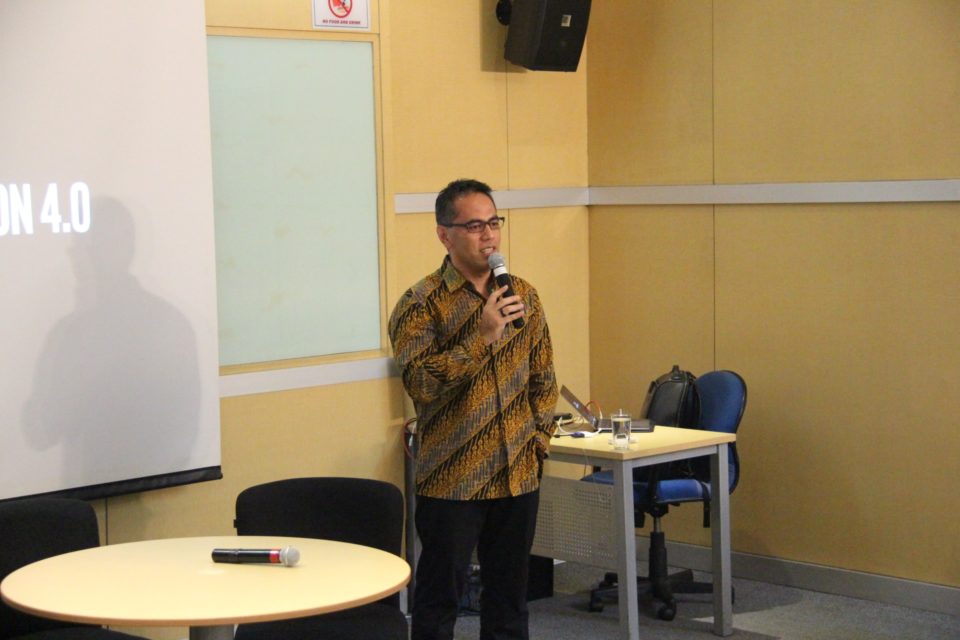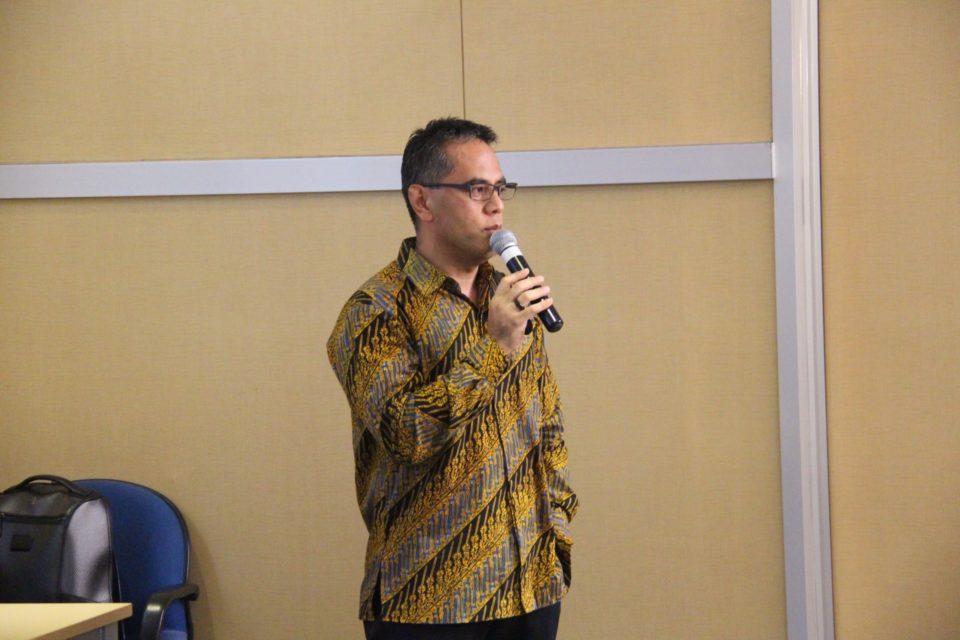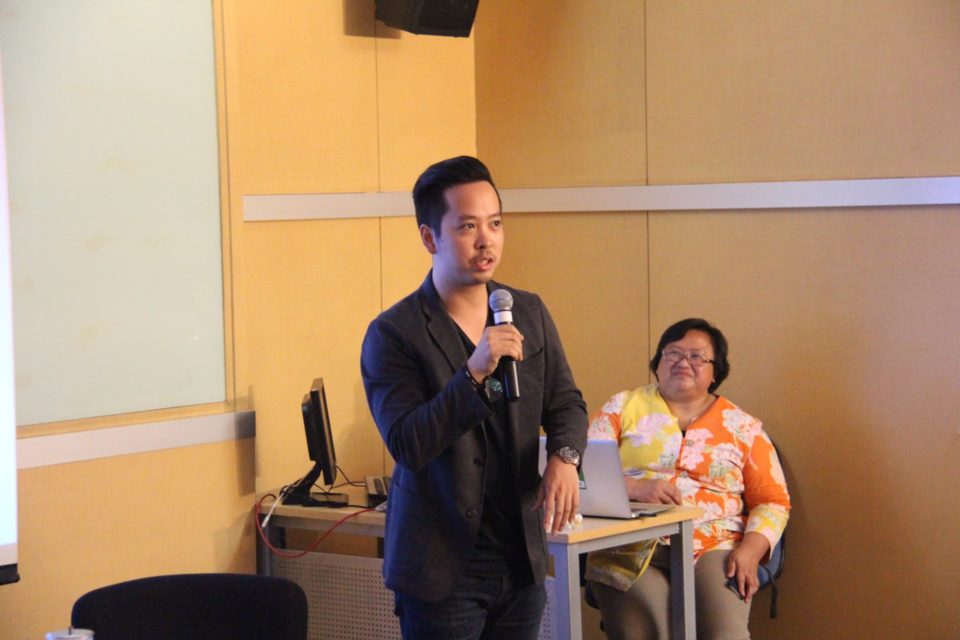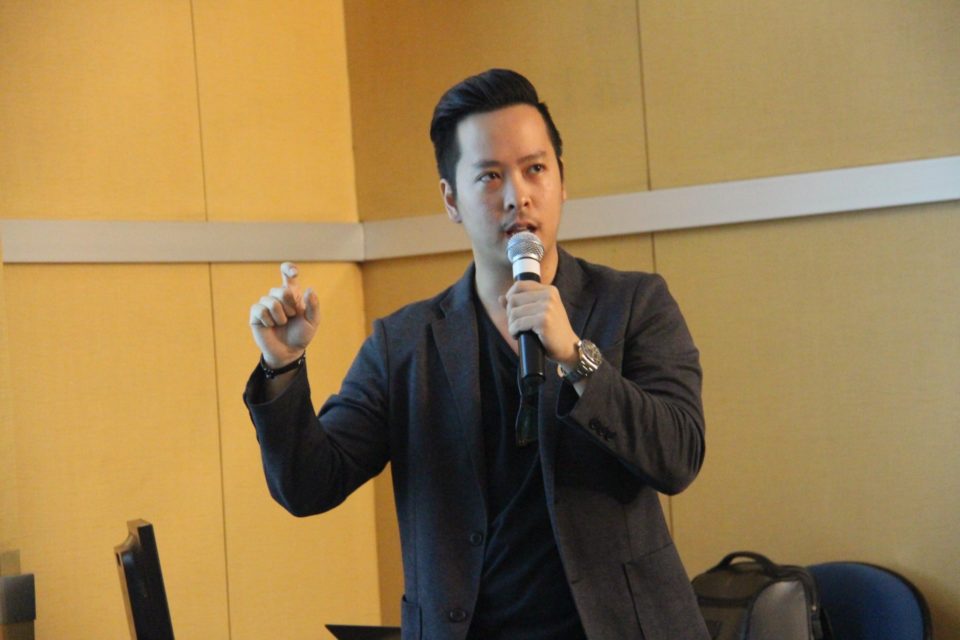Welcoming the Industrial Revolution 4.0
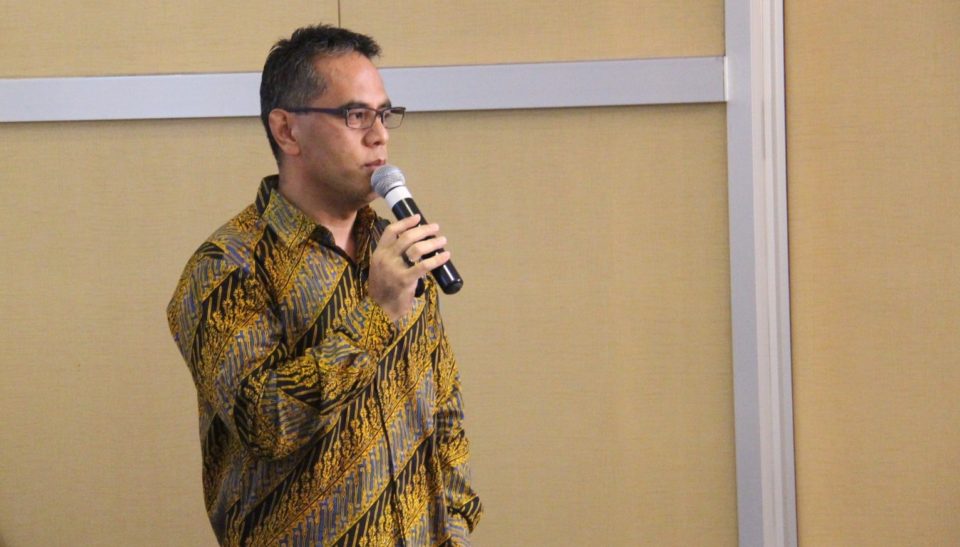
The era is keep changing and these changes certainly affect the industrial sector. In fact, these changes occur rapidly and radically – changes that are called as revolution. In industrial sector alone, there are four industrial revolutions occurred until today.
The first revolution occurred around 1760’s with the emergence of steam power. The following revolutions occurred around 1880’s and 1970’s, each was caused by the electricity mass production and digital computing automation. “And the fourth industrial revolution is occurring today,” said Harry Nugraha, the Country Manager of Intel Indonesia Corporation and Director of Intel Rest of Asia Region, in Industry Update that was held by BINUS BUSINESS SCHOOL MM in Creative Marketing program on Monday, March 6th, 2017, at BINUS JWC Campus, Senayan, Jakarta.
Harry explained that the fourth industrial revolution, or commonly referred as Industrial Revolution 4.0, is caused by the cyber-physical systems. The Industrial Revolution 4.0 is an era for artificial intelligence, better hardware, smarter algorithms, and bigger data.
In this era, digital transportation and digital business transformation become crucial. Moreover, Harry added, there will be data flood in 2020. “For that reason, Intel transforms its business model from PC processor production into data center and cloud,” he continued.
This industrial revolution also rapidly changes the working nature, which is affects the skills needed in the future. Harry said that in the future, the skills that will be needed are sensemaking, social intelligence, novel and adaptive thinking, cross-cultural competencies, computational thinking, new media literacy, trans-disciplinarity, design mindset, cognitive load management, and virtual collaboration.
Therefore, Harry continued, people also need to change because this Industrial Revolution 4.0 triggers massive changes for many sectors and relevant skillset from each individual is required. This is evidenced by the emergence of various jobs like app developer, social media manager, Uber driver, driverless car engineer, cloud computing specialist, data scientist, YouTube content creator, drone operator, and millennial gen expert that didn’t exist ten years ago.
Becoming a Social Entrepreneur in the Era of Industrial Revolution 4.0
Kevin Kumala, the founder of an eco-technology company, Avani, has his own way to view this fourth industrial revolution. For Kevin, rapid technological development has to give positive impact to the environment.
Avani is a company that produces bioplastic or eco-friendly plastic that is made from cassava, sugarcane, and corn. This product, beside can degrade biologically, is also compostable, recyclable with paper, passed oral toxicity test (harmless when consumed by animals), has high performance under load, and has lowest cost for bioplastic.
Kevin’s motivation to started Avani was triggered by his frustration of the high amount of waste, especially plastic waste, that polluted the beach and sea at Bali, a place for him to run his hobby – surfing. That frustration turned into hatred towards plastic, and then motivated him to look for solutions for the non-environmentally friendly plastic. “Frustration is the mother of invention,” said Kevin who also an alumnus from BINUS BUSINESS SCHOOL MM in Creative Marketing program.
Kevin explained that plastic waste pollution has already reached an alarming level. Approximately, there are 2.5 billion metric tons of solid waste that is produced all around the world, and 275 million metric tons within that is plastic waste. Not only that, every year, eight metric tons of plastic waste goes into the ocean.
One factor that makes the plastic pollution becomes more dangerous is it takes 500-1,000 years for plastic to completely degrade. Specifically, around 500 billion plastic bags that are used daily all over the world (one million plastic bags per minute), billion pounds of plastic waste covers 40 percent of sea surface, and in Indonesia, the amount of plastic straws that are used per day can reach 50,000 kilometers long. Meanwhile, the oxo-biodegradable plastic that was previously considered as solution eventually causes the micro-plastic pollution that is even more dangerous to the ecosystem.
Therefore, Kevin through Avani believes that the 3R (reduce, reuse, recycle) idea isn’t enough. According to him, “replace” is the right idea to be applied today. “Reduce, reuse, recycle isn’t enough, we also need to replace,” Kevin explained.
Kevin said that the replace concept is a form of technological advancement that enables companies to become socially responsible to assure sustainability. This idea can also be executed by private sectors with less layers of bureaucracy.
Avani, which is the manifestation of replace concept by Kevin, can produce various products: shopping bags, poly bags, aprons, trash bags, gloves, laundry bags, rain coats, bed sheets, packaging, shower caps, seat covers, and more. “Avani is a manifestation of my responsibility as a biologist, master in management, diver, surfer, adrenaline junkie, and individual who wants to make changes,” he said.
(ERON)


